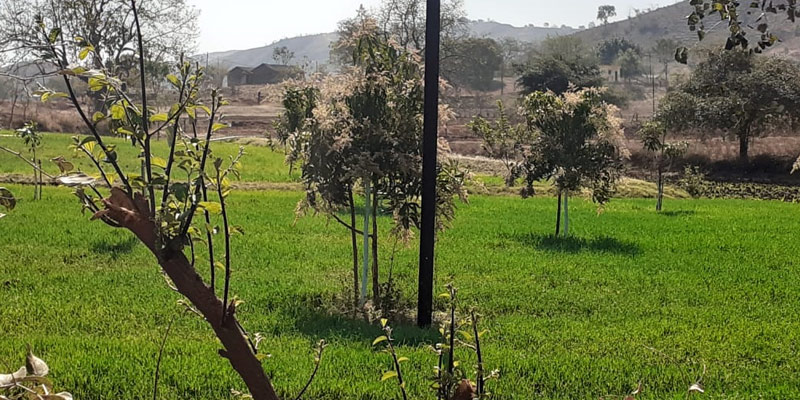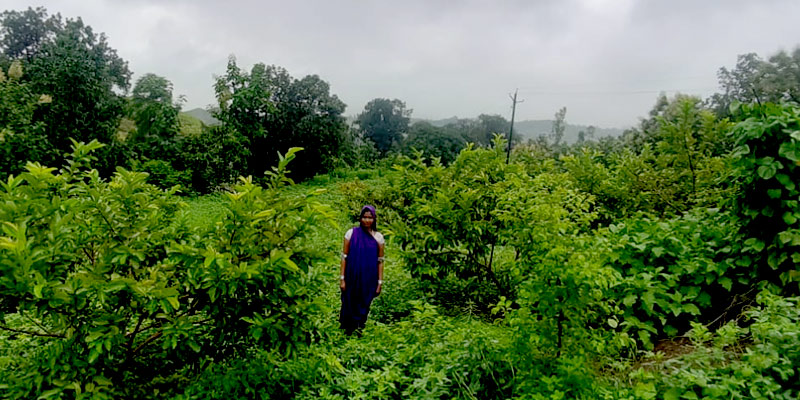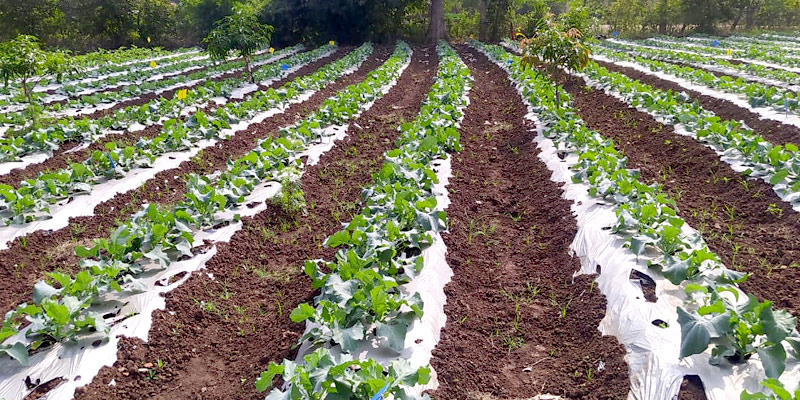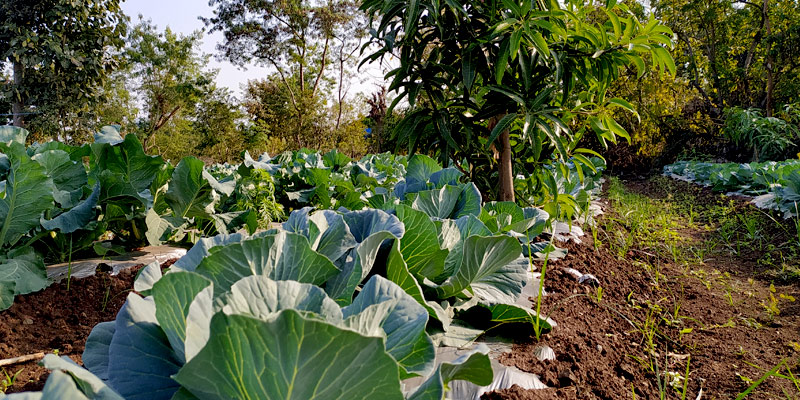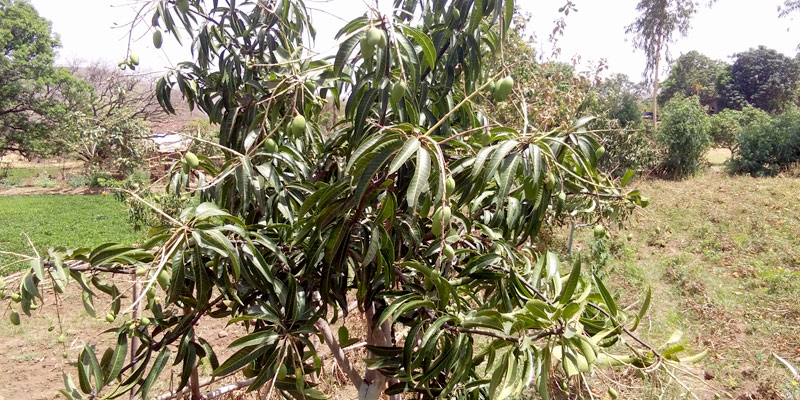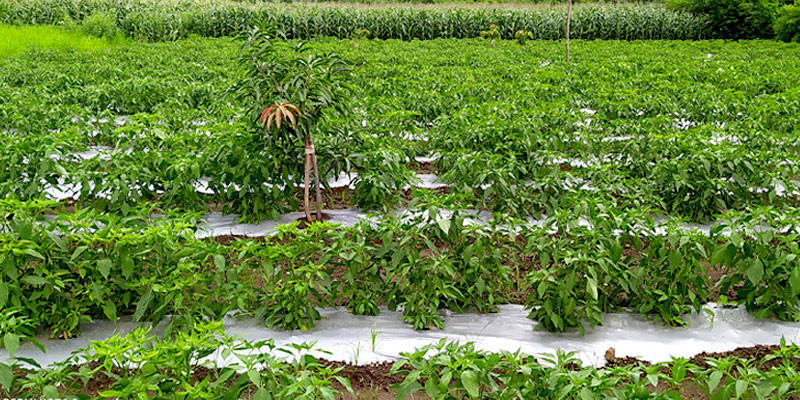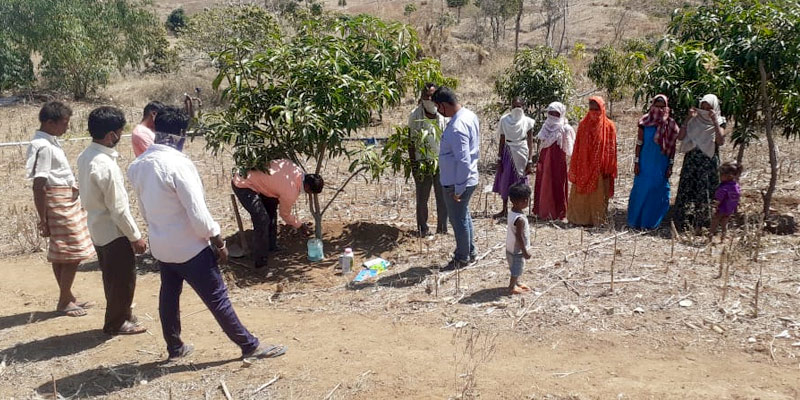
Hanibai Ishwar Padvi is a resident of Survani village in Nandurbar, Maharashtra. She is a marginal farmer and owns 2.6 acre of land. Until a few years ago, she practiced traditional farming and planted traditional crops like sorghum, maize and gram. However, these crops did not yield enough income to take care of her family’s basic necessities, pushing the family slowly and inexorably into poverty each year. The five-member family’s income was only INR 30,000 per annum up until 2017. Prosperity smiled on Hanibai when Collectives for Integrated Livelihood Initiatives (CInI), an associate organisation of Tata Trusts, implemented the Tribal Development Fund Wadi Programme in the village, which she soon joined.
The Tribal Development Fund is a programme supported by NABARD for plantation of fruit orchards (mango with guava) on 1 acre of land. The plantation is done on otherwise unused land (due to undulating topography), to help farmers optimise their resources and income, to lift themselves out of poverty. The orchard plantation also helps in protecting natural resources and the environment.
Hanibai actively participated in training sessions on agriculture conducted by the programme team and exposure visits to other farms to learn improved farming practices. In June 2017, she started cultivating a wadi (an orchard) in an acre of land. With support from the Tribal Development Fund Wadi Programme, she was able to plant 40 mango trees of the kesar variety and 20 guava trees of the L-49 variety.
A change in direction
In 2018-19, after attending a few training sessions on methodical agriculture practices, she gained confidence and decided to cultivate vegetables in the wadi as intercrops. She started with tomato and brinjal in 0.1 acre of the open field area of the wadi. She harvested the crops for two seasons, earning around INR 12,000.
With the steady growth and success in vegetable cultivation, Hanibai's approach towards agriculture changed. She invested more time and effort into enhancing it and began precision farming with the improved practices taught during the training sessions. She installed drip irrigation and adopted mulching technology in 0.5 acre land with support from the programme team. She cultivated seasonal vegetables and fruits like tomato, chilly, brinjal, cabbage and watermelon in both kharif and rabi seasons. Hanibai was able to earn INR 86,546 just from the sales of vegetables and fruits from the 0.5 acre of her land — setting a strong example of resilience and consistency for everyone around her. She reinvested part of the additional income saved in fencing her field with barbed wire to protect her crops from being eaten and trampled on by wandering cattle.
The wadi model has worked well for Hanibai and 999 more farmers in Nandurbar, Maharashtra. It has helped them diversify their crop basket and income sources. The model has also helped enhance their socio-economic condition and pulled them out of the slow slide to poverty.
